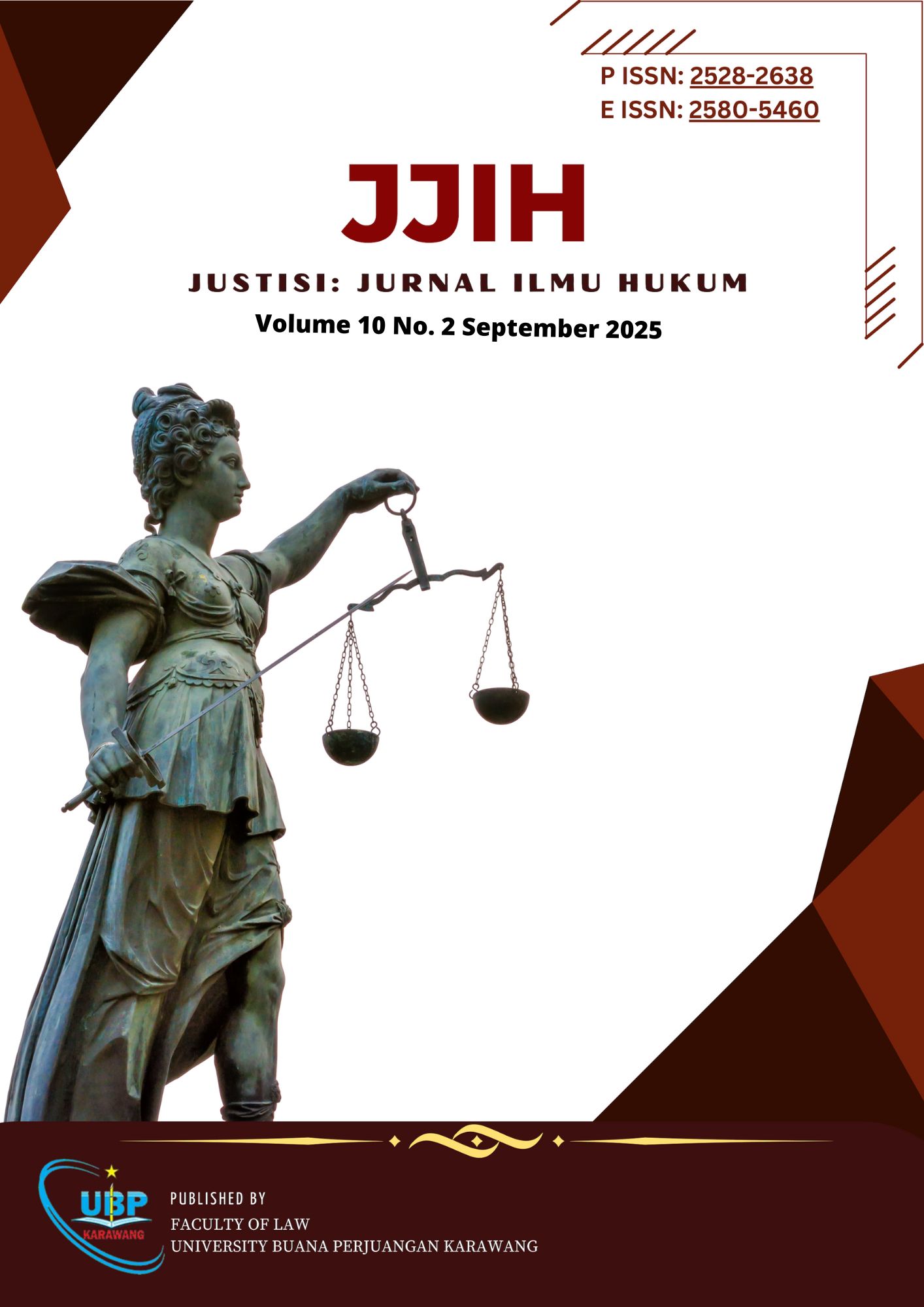AUTO AGREEMENT AND CONSENT VALIDITY IN E-TRANSACTIONS UNDER INDONESIAN LAW
DOI:
https://doi.org/10.36805/gjzrne60Keywords:
Digital Contract, Auto Agreement, Personal Data ProtectionAbstract
The digital transformation has introduced new forms of legal agreements, most notably through automatic consent mechanisms commonly seen in the form of “click to agree” on terms and conditions in digital services. Despite their prevalence, the extent to which these auto agreements comply with the principles of contract law remains underexplored. This study examines the validity of auto agreements within Indonesia’s digital contract framework, with particular focus on the requirements of contract formation under the Civil Code and the relevant provisions of the ITE Law, Government Regulation No. 71 of 2019, and the PDP Law. Using a normative juridical approach, the research finds that while auto agreements are typically standardized and non-negotiable, they can be legally enforceable if they meet the “mutual consent” requirement in Article 1320 of the Civil Code and adhere to statutory obligations on transparency and fairness. The PP PSTE and the amended ITE Law provide specific regulatory standards for standard clauses in digital contracts, while the PDP Law imposes strict conditions for explicit and informed consent in data processing clauses. The findings suggest that improving digital contract literacy, encouraging user engagement with key terms, and ensuring accessible dispute resolution mechanisms are essential to protect user rights. Within Indonesia’s legal system, auto agreements maintain their enforceability when aligned with the principles of equity, transparency, and informed consent.
References
Book:
Amalia, Nanda. Hukum Perikatan. Nanggroe Aceh Darussalam: Unimal Press, 2012. https://repository.unimal.ac.id/1148/1/%5BNanda%20Amalia%5D%20Hukum%20Perikatan.pdf
Santoso Az, Lukman. Aspek Hukum Perjanjian: Kajian Komprehensif Teori dan Perkembangannya, Yogyakarta: Penebar Media Pustaka, 2019. https://sar.ac.id/stmik_ebook/prog_file_file/293832.pdf
Sriwidodo, Joko & Kristiawanto. Memahami Hukum Perikatan. Yogyakarta: Kepel, 2021. Press. https://repo.jayabaya.ac.id/13/2/Memahami%20Hukum%20Perikatan_.pdf
Subekti. Hukum Perjanjian. Jakarta: Intermasa, 1979. https://www.scribd.com/doc/180875492/Hukum-Perjanjian
Journal Article:
Andikatama, Achmad Zulfa., & Turisno, Bambang Eko. “Consumer protection law in the digital era”. International Journal of Social Science and Human Research, 7 no. 7 (2024): 4552–4555. https://doi.org/10.47191/ijsshr/v7-i07-03. https://ijsshr.in/v7i7/3.php
Eleanora, Fransiska Novita., & Dewi, Aliya Sandra. “Pelaksanaan perjanjian baku dan akibat hukumnya bagi konsumen”. Jurnal Mercatoria, 15 no. 1 (2022): 74–85. https://doi.org/10.31289/mercatoria.v15i1.6812
Febriani, Melisa. “Studi hukum kritis: Pembatasan asas kebebasan berkontrak dalam perjanjian yang posisi para pihaknya tidak seimbang”. Jurnal Hukum Prioris, 8 no. 2 (2020): 255–264. https://doi.org/10.25105/prio.v8i2.14983
Harianto, Dedi. “Asas Kebebasan Berkontrak: Problematika Penerapannya dalam Kontrak Baku antara Konsumen dengan Pelaku Usaha.” Jurnal Hukum Samudra Keadilan, 11 no. 2 (2016): 145–156. https://ejurnalunsam.id/index.php/jhsk/article/download/33/14/
Hernoko, Agus Yudha. “Hukum perjanjian: Asas proporsionalitas dalam kontrak komersial. Jurnal Hukum Peradilan, 5 no. 3 (2016): 447-466. https://doi.org/10.25216/jhp.5.3.2016.447-466
Kurniasari, Nilam Andalia. “Kontrak elektronik dalam hukum kontrak Indonesia (Tesis Magister, Universitas Airlangga)”. Repositori Universitas Airlangga, (2005). https://repository.unair.ac.id/35913/
Suparto, Susilowati., & Drajat, Muhammad Rifqi Rafi. “Penguatan Perlindungan Hukum Konsumen Anak Sebagai Pengguna Teknologi Informasi di Era Digital.” Acta Diurnala: Jurnal Ilmu Hukum Kenotariatan Fakultas Hukum Universitas Padjadjaran 7 no.2 (2024). https://doi.org/10.23920/acta.v7i2.1707. https://jurnal.fh.unpad.ac.id/index.php/acta/article/view/1707
Syamsiah, Desi. “Kajian terkait keabsahan perjanjian e-commerce bila ditinjau dari Pasal 1320 KUHPerdata tentang syarat sah perjanjian”. Jurnal Inovasi Penelitian 2, no. 1 (2021): 327–332. https://doi.org/10.47492/jip.v2i1.1443. https://ejournal.stpmataram.ac.id/JIP/article/view/1443
Walangitang, Alicia. Kajian hukum atas kontrak baku elektronik dikaitkan dengan sahnya perjanjian dalam KUHPerdata. Lex Privatum, 8 no.2 (2020): 42-51. https://ejournal.unsrat.ac.id/v3/index.php/lexprivatum/article/view/29781
Wijaya, Hadi., & Yulianingsih, Wiwin. “Pencantuman Klausula Eksonerasi dalam Syarat dan Ketentuan Aplikasi Trading Efek.” Legal Spirit 8, no. 3 (2024): 521-530. https://publishing-widyagama.ac.id/ejournal-v2/index.php/jhls/article/view/5524
Yacub, Rudi., & Mustajab, Wahyu. “Analisis pengaruh pemasaran digital (Digital Marketing) terhadap brand awareness pada e-commerce”. Jurnal Manajerial 19, no. 2 (2020): 198–209. https://doi.org/10.17509/manajerial.v19i2.24275. https://ejournal.upi.edu/index.php/manajerial/article/view/24275/pdf
Yerby, J., & Vaughn, I. “Deliberately Confusing Language in Terms of Service and Privacy Policy Agreements.” Issues in Information Systems 23, no. 2 (2022): 138–149. https://doi.org/10.48009/2_iis_2022_112. https://iacis.org/iis/2022/2_iis_2022_138-149.pdf

Downloads
Published
Issue
Section
License
Copyright (c) 2025 Dheya Rahmawati, Adi Kristian Silalahi

This work is licensed under a Creative Commons Attribution 4.0 International License.
Deposit & Pengarsipan Mandiri
Naskah artikel versi pra-cetak (draf awal), versi diterima (draf akhir), dan versi penerbit (PDF terbitan) boleh diarsipkan mandiri di situs web pribadi atau repositori institusional milik penulis dengan tetap mencantumkan status progres dan sumber asli yang merujuk pada website jurnal ini.
Preservasi & Pengarsipan Sistem
Jurnal ini tergabung dalam jaringan PKP Preservation Network, yang menyediakan layanan preservasi dan pengarsipan secara otomatis apabila terjadi sesuatu yang menyebabkan jurnal ini tidak terbit lagi (trigger event).



